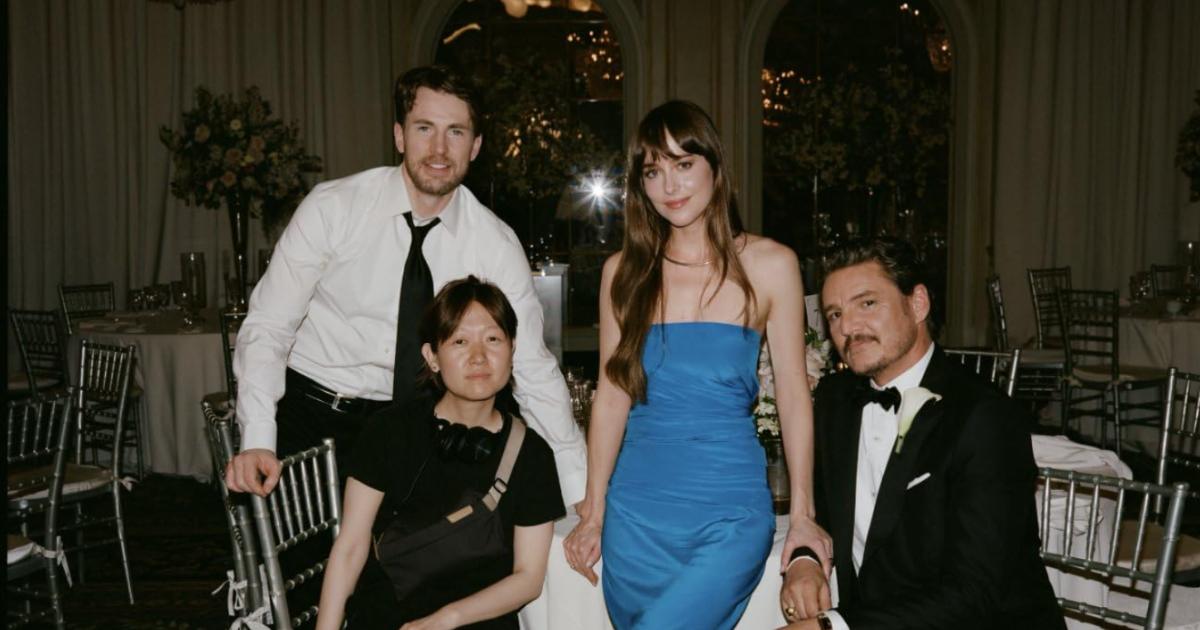Examining How Dating and Political Beliefs Intersect in America
As political polarization continues to dominate headlines and shape societal discourse, the role of politics in personal relationships has emerged as a significant area of inquiry during this election year.
Drawing from a diverse sample of individuals, both single and in relationships, across the U.S., we explore the complex interplay of political alignment in modern-day relationships to reveal its impact on dating preferences, relationship dynamics, and long-term compatibility.
Our analysis finds:
- A significant portion of singles consider political alignment a barrier to romance: 46% would avoid dating someone with opposing political views.
- Democrats place a higher emphasis on political compatibility in romantic relationships (82%) – compared to Republicans (67%) and Independents (68%).
- Women generally attribute greater importance to political alignment than men – 26% of single women consider political compatibility non-negotiable, while only 14% of single men share this sentiment.
- Among those in current relationships, 21% consider sharing similar political beliefs with their partner crucial for their relationship satisfaction.
- 1 in 10 Gen Z individuals would promptly end a date over opposing political views, while 21% of baby boomers consider political alignment unimportant in relationships.
- 42% of gay/lesbian respondents stress political belief alignment in relationships, contrasting with only 18% of straight people.
Now, let’s delve deeper into these discoveries.
Table of Contents
- Examining How Dating and Political Beliefs Intersect in America
- The Influence of Politics on Dating Dynamics Among American Singles
- Partisan Differences on Political Alignment with Romantic Partners
- Key Gender Differences Concerning the Role of Politics in Dating
- How Political Alignment Shapes Relationships in America
- Understanding Political Perspectives Across Demographic Groups
- Political Alignment Preferences Across Different Regions
- Methodology
The Influence of Politics on Dating Dynamics Among American Singles

In the complex world of dating, singles in America must increasingly weigh the scales of romance and politics. Political alignment is often a reflection of core values and beliefs and can be a pivotal factor in the search for a romantic partner.
Political Alignment: A Dating Deal-Breaker?
For 21% of singles, sharing similar political views isn’t just preferable; it’s non-negotiable in a romantic relationship. The political divide is a barrier to romance for nearly half of the singles surveyed, with 46% stating they would steer clear of someone with opposing political views. Meanwhile, 29% remain open to the possibility, and 25% sit on the fence with a ‘maybe.’
In the digital age of dating, 33% of app users leverage political filters to sift through potential matches, emphasizing the weight of political compatibility. Notably, 15% always use this filter, marking politics as a critical criterion in their selection process.
Despite the charged political atmosphere, 15% of singles are open-minded enough to confidently step into the dating scene with someone from an opposing political camp.
The act of voting itself is polarizing — a significant 37% of singles would not even entertain a romance with someone who doesn’t participate in the voting process. On the other hand, 63% will.
Navigating Political Conversations
Over half of the singles surveyed (55%) prefer to completely avoid political discussions in the early stages of a romantic connection. Our matchmakers often advise this approach, suggesting that focusing on personal connections first can lead to a stronger foundation for future discussions.
While most shy away from political discourse, 1 in 10 singles (10%) view the first date as an opportune moment to unveil their political beliefs, suggesting a desire for early transparency.
When faced with a date whose political views diverge sharply from their own, 41% of singles would choose to listen without initiating a conflict. Another 35% would engage in a polite debate.
Despite the avoidant approach, 45% are not willing to overlook political differences —making it a deal-breaker for nearly half of the dating population. When push comes to shove, 23% of respondents have halted a budding romance due to irreconcilable political differences.
Partisan Differences on Political Alignment with Romantic Partners

To date within or outside of your political alignment is a question that can grow more persistent during an election year. Our survey reveals that 82% of Democrats consider political compatibility essential in romantic relationships, a sentiment less emphasized by Republicans (67%) and Independents (68%).
More specifically:
- 34% of Republican singles often or always avoid discussions with their partner about politics, compared to only 19% of Democrats and Independents.
- 63% of Republicans report that political views have never caused conflict, a sentiment less common among Democrats (52%) and Independents (42%).
- When choosing a partner, political alignment plays a crucial role for 19% of Democrats, while only 8% of Republicans consider it a key factor.
- The desire for a partner with shared political beliefs is especially strong among Democrats (31%), compared to Republicans (13%) and Independents (9%).
- Republicans (70%) are more open to dating non-voters than Democrats (55%).
Democrats place a premium on aligning with their partners on key social issues, including:
- Reproductive rights (66%)
- Healthcare (46%)
- Gun policies (40%)
Conversely, Republicans tend to prioritize aligning on economic and security issues, focusing on:
- Inflation (45%)
- Immigration (43%)
- Jobs & the economy (36%)
Less critical topics for alignment for Democrats include international policy (54%), inflation (40%), and national security (38%). For Republicans, less critical topics for alignment include climate change (53%), international policy (44%), and reproductive rights (33%).
Key Gender Differences Concerning the Role of Politics in Dating
Our findings also shed light on how single men and women navigate the political dimensions of dating. Political compatibility is non-negotiable for 26% of single women, a sentiment echoed by just 14% of single men.
The willingness to engage romantically with someone of opposing political beliefs diverges markedly:
- 58% of single women would outright reject dating someone with opposing views. Only 33% of single men share this level of reluctance.
- The reluctance to date non-voters is notably higher among women, with 29% expressing unwillingness, compared to 9% of men.
- Men appear more flexible regarding political differences, with 44% open to compromise for the sake of a relationship, double the rate among women (22%).
- 44% of women employ political filters on dating platforms, compared to 21% of men.
- Men are more likely to view political differences as learning opportunities, with 22% expressing this sentiment, almost double the rate among women (12%)
- Political discord has led to initiating breakups for 28% of women, compared to 16% of men.
The stance on dating someone who supports an opposing political party also varies:
- 24% of women categorically rule out such prospects.
- Only 12% of men express a similar level of opposition.
This underscores a broader trend of women placing a higher premium on shared political beliefs in romantic contexts. Both single men and women rank reproductive rights highly for political alignment in a relationship, but the emphasis varies significantly:
- 75% of women prioritize alignment on reproductive rights, far outpacing the 38% of men who feel the same.
- Both women and men similarly value agreement on climate issues, with 34% of women and 35% of men emphasizing its importance, alongside other priorities like gun control for women (44%) and healthcare for men (33%).
How Political Alignment Shapes Relationships in America

In long-term relationships, politics plays a diverse and sometimes subtle role. From the jump, 31% of individuals in committed relationships report that political compatibility played a minimal role in their choice of partner. That said, 14% call political alignment a pivotal factor in choosing their significant other. Once comfortable in the relationship, political discourse becomes more normalized:
Frequency of Political Discussions and Shared Media Consumption
A substantial 28% of couples engage in political discussions at least once a week, underscoring the regularity of such conversations within their relationships. Additionally, nearly half (49%) of couples surveyed consume the same news sources, potentially fostering a shared perspective that influences these discussions.
These conversations often lead to healthy debates for 47% of couples, while 15% experience occasional tension. A pragmatic approach of ‘agreeing to disagree’ is adopted by 25% of couples to navigate political differences.
Over half (52%) of couples indicate that differences in political views have never led to conflict, suggesting a level of either harmony or effective management of political diversity. In fact, 30% of couples find that political discussions positively enrich their partnership.
Impact on Partnership Cohesion and Decision-Making
A strong majority (77%) of couples believe in the importance of political compatibility for the success of a long-term relationship, although a substantial minority (23%) do not consider it crucial.
14% of couples have witnessed significant shifts in their political views since being together, indicating the dynamic nature of political beliefs within relationships. The impact of political compatibility extends to decision-making, with 60% of couples acknowledging that political beliefs have an influence on major decisions in their relationship.
Couples identified reproductive rights, healthcare, and gun policies as key areas where political alignment is the most important, reflecting the issues most pertinent to their collective values and concerns.
Understanding Political Perspectives Across Demographic Groups
Generations
Millennials emerge as the most receptive generation to dating someone with opposing political views — 47% of singles expressing willingness to do so.
Gen Z singles exhibit an unprecedented level of intolerance toward political divergence:
- Over one in five Gen Z singles would outright refuse to go on a date with someone who supports an opposing political party.
- A noteworthy 10% indicate they would immediately end a date if their counterpart expressed vastly different political views.
Baby boomers emerge as the cohort least concerned with political alignment in relationships:
- 21% assert it holds no importance whatsoever, a sharp contrast to the mere 6% of Gen Z respondents who share this sentiment.
However, baby boomers demonstrate the least willingness to compromise on political differences for the sake of a relationship, with a significant 70% stating they are unwilling to do so.
Different age groups also have differing priorities when it comes to the most important topics to align on with a partner:
- Gen Z prioritizes alignment on issues such as reproductive rights (69%), healthcare (42%), and climate change (38%).
- Baby boomers prioritize healthcare (46%), inflation (44%), and immigration (39%).
Sexual identities
A substantial 71% of gay/lesbian singles express reluctance to consider dating someone with opposing political views, a significantly higher proportion when compared to 41% of straight singles who share this sentiment. In terms of dating:
- Notably, one-third of gay/lesbian singles (33%) firmly assert they would never entertain the idea of going on a date with someone who supports an opposing political party.
- 42% state political compatibility is crucial in choosing their partner. This contrasts sharply with the mere 9% of straight singles prioritizing political alignment to the same extent.
In relationships, gay/lesbian couples overwhelmingly endorse the importance of political compatibility for long-term relationship success, with a staggering 90% asserting its significance. In contrast, 75% of straight couples share this belief, indicating a heightened awareness of political dynamics within same-sex relationships.
Education Level
The propensity to compromise on political disparities for the sake of a relationship exhibits a notable decline with increasing education level.
While 42% of singles with a high school diploma or equivalent express a willingness to compromise, this figure diminishes to 28% among those holding a master’s degree.
Similarly, the willingness to embark on a date with someone who supports an opposing political party decreases with higher education. Only 21% of high school diploma or equivalent holders are open to such dates, compared to a mere 5% among those with a master’s degree.
Political Alignment Preferences Across Different Regions
Rural singles emerge as the most open to dating someone with opposing political views, with 40% expressing willingness, in contrast to suburban singles, where over half (51%) are not open to such prospects.
Conversely, urban singles exhibit the least willingness to date someone who does not vote, with 23% expressing reluctance, compared to 18% of suburban singles and 13% of rural singles.
The importance of political compatibility with a partner is most pronounced among urbanites (56%), followed by suburban (45%) and rural residents (43%).
Variation Across States
From the 44 states surveyed, we’ve distilled the most significant insights, focusing on states where participant responses stood out prominently compared to others.
- North Carolina stands out with the highest proportion (76%) of individuals who would not consider dating someone with significantly different political views.
- Conversely, Ohio boasts the highest percentage (58%) of residents willing to consider dating someone with significantly different political views, reflecting a more open mindset in the state.
- Similarly, in Wisconsin, another well-known swing state, 51% of the population expressed a willingness to do the same.
- California leads in the percentage of residents (19%) reporting that political discussions never occur within their romantic relationships.
- Florida residents are most inclined to end a relationship due to political differences (28%).
- Notably, over one in six Floridians (16%) express a willingness to potentially change their political beliefs for the sake of a relationship.
- Residents of Louisiana exhibit the strongest stance in maintaining their political beliefs within relationships, with 64% expressing unwillingness to change, the highest among all surveyed states.
- Arizona residents are the most open to dating someone not planning to vote in the 2024 presidential election, with 50% expressing definite willingness, while 13% of Georgians adamantly oppose the idea, the highest among surveyed states.
- In Oklahoma, 47% of residents find it challenging to find potential partners with similar political values.
- Conversely, residents of Maine report the least difficulty (88%) in finding partners with aligned political values.
- On average, residents of Colorado require 2.8 months of dating before feeling comfortable disclosing their political affiliation.
Closing Thoughts
In delving into the intricate interplay between politics and romance, our study sheds light on the evolving landscape of modern relationships among Americans. With over 3,000 participants surveyed, we uncovered significant insights into how political alignment influences dating preferences, relationship dynamics, and long-term compatibility.
As we conclude this study, we are reminded of the importance of understanding the multifaceted dimensions of human connections. At The Matchmaking Company, our commitment to fostering meaningful relationships remains unwavering, and we invite you to explore how our personalized matchmaking services can help you find your perfect match.
Methodology
The aim of this research is to explore how political alignment impacts dating preferences and relationship dynamics within a sample of American adults. We surveyed 3,211 participants between March 5th and March 14th, 2024, employing a national random sampling method to ensure a diverse representation across various demographics, including gender, age, partisan affiliation, sexual identity, education, and other relevant categories.









